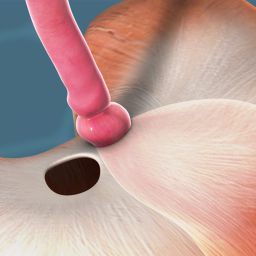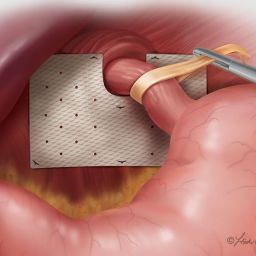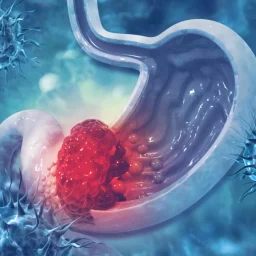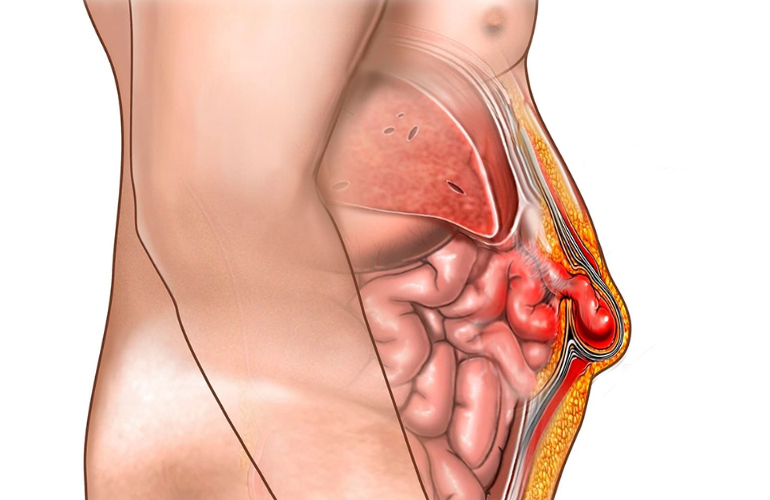
1. The Importance of Diet After Hiatal Hernia Surgery
A balanced and carefully planned diet is essential after hiatal hernia surgery for several reasons:
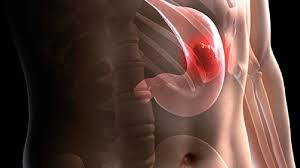
- Promotes Healing: Nutrients such as protein, vitamins, and minerals play a critical role in wound healing and tissue repair. The proper intake of these nutrients ensures that the body can recover from the surgical procedure.
- Reduces Stress on the Digestive System: The digestive system is delicate after surgery, and consuming the wrong foods can cause discomfort or lead to complications like bloating, acid reflux, or nausea. Gradual, gentle reintroduction of foods is crucial.
- Minimizes the Risk of Complications: A proper diet helps prevent complications such as dysphagia (difficulty swallowing), acid reflux, or gas buildup, which can be exacerbated by eating foods that are too heavy or difficult to digest.
- Restores Energy: Recovery from surgery can be physically taxing, and an adequate intake of calories and nutrients is necessary to rebuild strength and energy levels.
2. Phases of Post-Surgery Diet
The post-surgery diet typically progresses through several phases, each with specific guidelines to ensure the digestive system has time to adjust.
Phase 1: Clear Liquids (First Few Days)
In the immediate postoperative period, patients will generally be restricted to clear liquids. This phase allows the digestive system to recover while minimizing stress on the surgical site. Clear liquids include:
- Water
- Broth (chicken, beef, or vegetable)
- Clear fruit juices (without pulp)
- Herbal teas
- Ice chips
This phase typically lasts for 1–2 days, depending on the surgeon’s recommendations and the patient’s individual recovery progress.
Phase 2: Full Liquids (1-2 Weeks After Surgery)
Once clear liquids are well tolerated, the patient can gradually move on to full liquids. Full liquids are those that can be poured but may contain small amounts of solid particles. These liquids are more nutrient-dense than clear liquids and provide essential vitamins and minerals, which help support recovery. Foods and liquids during this phase include:
- Smooth soups (strained to remove any solid particles)
- Milk or milk alternatives (such as soy or almond milk)
- Smooth, unsweetened yogurt
- Puddings, custards, and smoothies (without seeds or skins)
- Protein shakes or meal replacement drinks (to ensure adequate protein intake)
Phase 3: Soft Foods (2-6 Weeks After Surgery)
As the patient’s recovery continues and their ability to digest more complex foods improves, they can begin to eat soft, easily chewable foods. This phase focuses on avoiding any foods that could cause discomfort or difficulty swallowing while still providing nutritional value. Soft foods include:
- Mashed potatoes or sweet potatoes (without skin)
- Scrambled eggs
- Steamed vegetables (such as carrots, zucchini, and spinach)
- Oatmeal, cream of wheat, or grits
- Smooth nut butters (peanut or almond butter, for example)
- Low-fat cheeses (such as cottage cheese)
These foods are easily digestible and help the body transition from liquid to solid foods.
Phase 4: Gradual Introduction of Solid Foods (6 Weeks and Beyond)
Once the stomach has fully healed and the body has adjusted to softer foods, patients can slowly begin incorporating more solid foods into their diet. However, they should avoid overly spicy, greasy, or acidic foods that can irritate the digestive system. Suitable options include:
- Lean proteins like chicken, turkey, and fish
- Whole grains (rice, quinoa, and whole wheat pasta)
- Fresh fruits and vegetables (steamed or well-cooked)
- Low-fat dairy
- Whole-grain crackers or bread
At this point, patients should continue to eat small, frequent meals rather than large portions to avoid putting undue stress on the stomach. It is also important to stay hydrated and avoid drinking large amounts of liquids with meals to prevent bloating.
3. Recommended Nutrients for Post-Surgery Healing
While adhering to the stages of the post-surgery diet is important, certain nutrients are particularly essential for the healing process after hiatal hernia surgery:
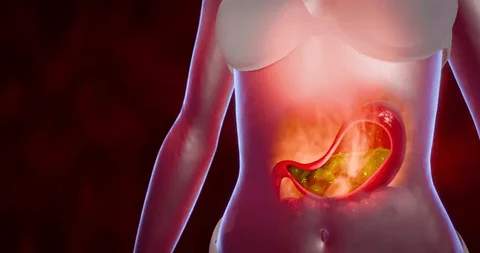
Protein
Protein is a fundamental nutrient required for tissue repair and healing. Adequate protein intake supports the growth of new cells, tissue repair, and immune function. During the recovery phase, it is important to include good sources of protein such as:
- Chicken, turkey, and fish
- Eggs
- Low-fat dairy (yogurt, cottage cheese)
- Legumes (beans, lentils)
- Tofu and tempeh
- Protein-rich shakes or powders (if recommended by a healthcare professional)
Fiber
Fiber is essential for digestive health. However, after hiatal hernia surgery, the stomach needs time to adjust to the intake of fiber-rich foods. Initially, you should focus on low-fiber foods to avoid irritation. Once the digestive system has recovered, high-fiber foods like vegetables, fruits, and whole grains should be reintroduced gradually to maintain bowel regularity.
Vitamins and Minerals
Certain vitamins and minerals play a critical role in the healing process. These include:
- Vitamin C: Supports collagen production and tissue healing. Good sources include citrus fruits, berries, and leafy greens.
- Vitamin A: Essential for immune function and tissue repair. Sources include carrots, sweet potatoes, and spinach.
- Zinc: Involved in immune function and wound healing. Found in nuts, seeds, and whole grains.
- Calcium and Vitamin D: Essential for bone health, especially important during the recovery phase. Dairy products, fortified alternatives, and sunlight are great sources.
Hydration
Proper hydration is essential throughout the recovery process, especially in the early stages when the body is healing. Drinking sufficient water ensures that the body can properly absorb nutrients, eliminate waste, and promote overall recovery. It is recommended to drink water consistently throughout the day, but avoid drinking too much liquid during meals, as this may cause bloating or discomfort.
4. Foods to Avoid After Hiatal Hernia Surgery
While there are several beneficial foods that support the recovery process, there are also certain foods and beverages that should be avoided to minimize discomfort and prevent complications. These include:
Acidic Foods
Acidic foods can irritate the stomach lining and exacerbate acid reflux or heartburn. Common acidic foods to avoid include:
- Citrus fruits (oranges, lemons, and grapefruit)
- Tomatoes and tomato-based products
- Vinegar
Spicy Foods
Spicy foods can irritate the stomach and lead to inflammation or increased acid production. Avoid hot peppers, spicy sauces, and foods with strong spices such as chili powder or curry.
Greasy or Fried Foods
Fried and greasy foods are difficult to digest and can lead to discomfort, bloating, and nausea. It is best to avoid fast food, deep-fried foods, and heavy, greasy meats such as bacon.
Caffeinated Beverages
Caffeine can increase stomach acid production and worsen acid reflux symptoms. It is advisable to avoid caffeinated drinks such as coffee, soda, and certain teas, especially in the first few weeks after surgery.
Carbonated Drinks
Carbonated beverages can contribute to bloating and discomfort, as they produce gas in the stomach. It is recommended to avoid sodas, sparkling water, and beer during the recovery period.
5. Long-Term Dietary Considerations
Once the initial recovery period has passed and the patient is able to resume a normal diet, it is important to maintain a healthy and balanced eating pattern to prevent further complications with the hernia or reflux. This includes:
- Eating smaller, more frequent meals: Smaller meals reduce the pressure on the stomach, preventing the risk of the stomach hernia slipping through the diaphragm.
- Avoiding overeating: Eating large meals can increase abdominal pressure and potentially aggravate the hernia.
- Monitoring food triggers: Keep track of foods that may exacerbate acid reflux or discomfort, and avoid them as needed.
Additionally, maintaining a healthy weight through proper diet and exercise is important for long-term digestive health and to prevent further issues with the hernia.
A careful approach to diet after hiatal hernia surgery can significantly impact the recovery process, helping individuals heal more quickly, avoid complications, and prevent the recurrence of symptoms. Following a staged approach to reintroducing foods, focusing on nutrient-dense, easy-to-digest options in the early weeks, and gradually progressing to solid foods can help ease the transition back to normal eating.
Paying close attention to hydration, protein intake, and vitamins and minerals, while avoiding certain foods that may irritate the digestive system, will also ensure that the body has the nutrients it needs to heal and regain strength. Finally, adopting a long-term healthy eating pattern can help maintain digestive health and prevent future hernia-related issues.
By following these dietary guidelines and consulting with a healthcare professional or dietitian, individuals can significantly improve their chances of a smooth recovery and maintain long-term health after stomach hernia surgery.

